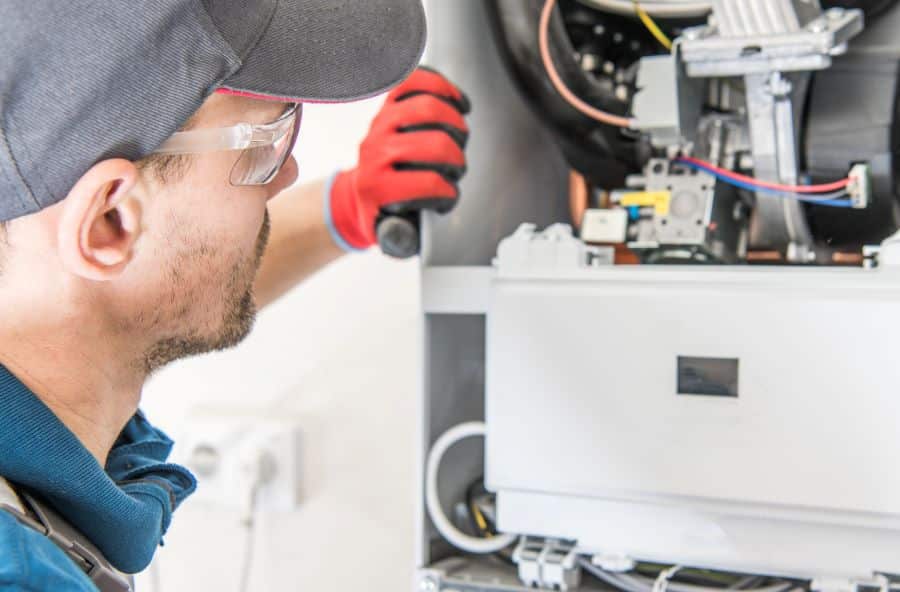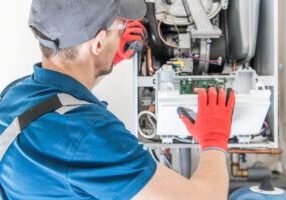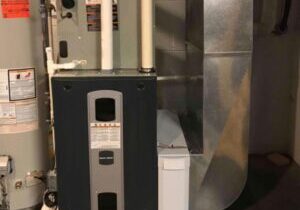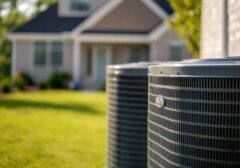As experienced HVAC technicians serving Pittsburgh, we understand that heating efficiency is a top priority for homeowners. In a city known for unpredictable weather, staying warm without breaking the bank is no small feat.
Factor in older homes with poor insulation or outdated windows, and choosing the right heating system can quickly become overwhelming. In this article, we’ll address the most common questions about heating efficiency and share expert advice to help you choose the best heating system for your home.
Replacing Your Furnace? Top 6 Questions Every Pittsburgh Homeowner Should Ask
1. Do I Need Specific Licenses and Permits to Install a Furnace in My Pittsburgh Home?
In areas outside of Pittsburgh, we generally don’t need specific licensing and permits for HVAC systems. However, in Pittsburgh, HVAC installations require both permits and licensed contractors. At Spurk HVAC, we are fully licensed and adhere to all City of Pittsburgh permitting regulations to ensure safe, compliant installations.
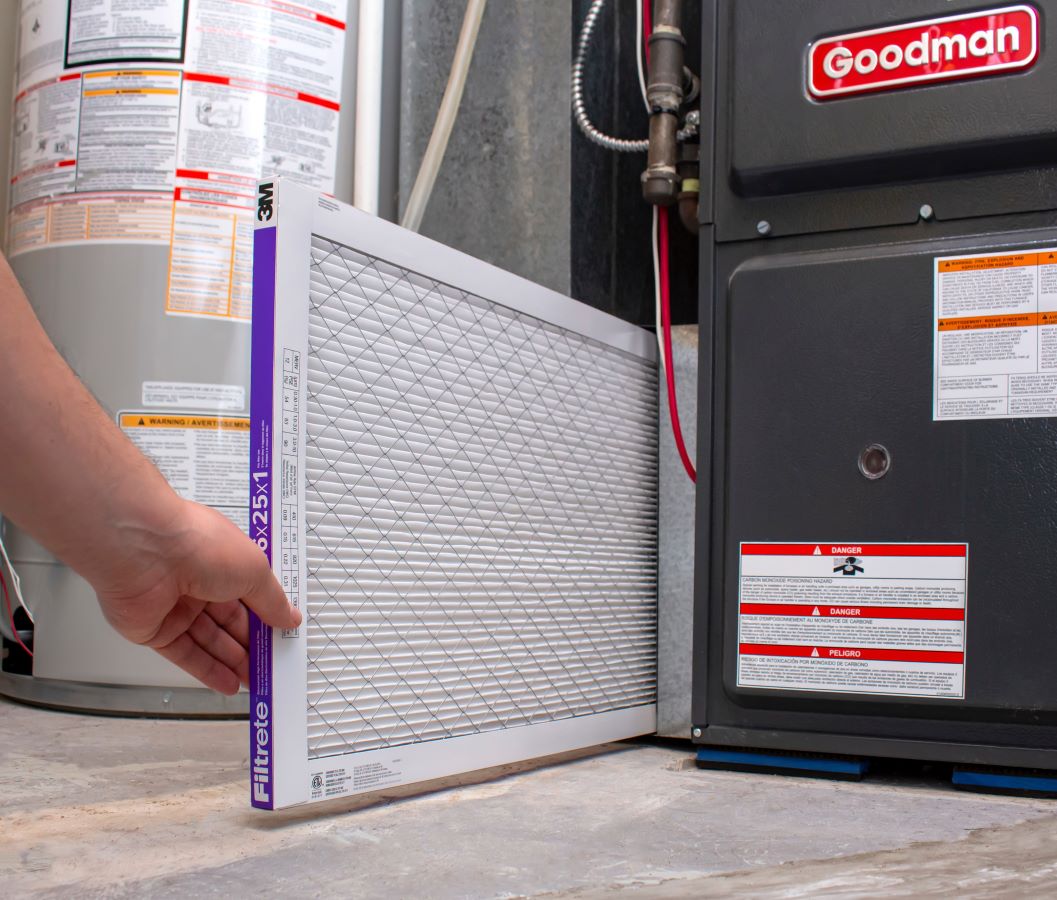
Keep Your Furnace Running Like New
Our 21-point furnace inspection checklist will help with lower energy bills, fewer repairs, and a longer lifespan for your system.
2. What Are the Efficiency Options for my Heating System?
When it comes to furnaces, efficiency has a direct impact on your operating costs. Here’s a quick guide to your options, helping you to choose the best fit for your home:
- Standard Efficiency Furnaces (80%)
These furnaces use a metal venting system, making them ideal for homes with specific venting needs. They’re reliable but not as efficient as modern alternatives. Approximately 80 cents for every $1 spent on your heating bill goes towards heating your home. - High Efficiency Furnaces (92%–98%)
High-efficiency systems use PVC pipes for venting, starting at 92% efficiency.Approximately 92 - 98 cents for every $1 spent on your heating bill goes towards heating your home.
Pro tip: AFUE, or Annual Fuel Utilization Efficiency, is a rating that indicates how effectively a furnace converts fuel into usable heat. The higher the rating, the more efficient the system is.
Furnace Options:
-
- Single-Stage
AFUE: Up to 95%
Our Recommendation: American Standard S9X1 Gas Furnace
American Standard
Silver S9X1 Gas Furnace
- Single-Stage
A single-stage furnace runs at full capacity (100%) or is completely off. It heats until it reaches the set temperature, then shuts off, turning back on when there is another call for heat from the thermostat. While it’s less efficient than other options, it’s a budget-friendly option.
-
- Two-Stage
AFUE: Up to 97%
Our Recommendation: American Standard Gold S9V2 Gas Furnace
American Standard
Gold S9V2 Gas Furnace
- Two-Stage
A two-stage furnace operates at two heating levels, switching between 60% and 100% capacity. It runs at the lower setting during mild temperatures and ramps up to 100% during extreme cold. This provides more efficient heating and better comfort than a single-stage furnace. While more expensive than single-stage models, it has lower operating costs and is less expensive than a fully modulating furnace.
-
- Modulating
AFUE: Up to 97–98%
Our Recommendation: American Standard Platinum 95 Gas Furnace
American Standard
Platinum 95 Gas FurnaceA modulating furnace offers precise temperature control, with heating stages ranging from 40% to 100% capacity. The gas valve adjusts in small increments (as little as 0.5%) based on thermostat demands, allowing it to run continuously at a low setting. Though it’s more of an upfront investment, its efficiency can save you money in the long run through lower heating bills.
- Modulating
High-efficiency systems offer long-term savings but require additional installation considerations, like venting changes, if your home currently has a standard efficiency furnace.
3. What Installation Challenges Should I Expect?
Upgrading to a high-efficiency furnace can come with a few installation challenges, including:
- Venting Requirements
High-efficiency models require PVC venting to the outdoors. A clear path from the furnace to the home's exterior is required. Finished basements with drywall ceilings can make this challenging but possible. - Drain Requirements
High-efficiency furnaces produce condensate water in heating mode. This must be considered when the furnace is installed in an unconditioned space like an attic.
Before recommending an upgrade, Spurk HVAC assesses your home’s layout to determine what’s feasible and provides transparent, tailored options for your unique situation.
4. What Factors Affect Heating System Efficiency in Pittsburgh Homes?
Two factors influence how efficiently your heating system operates in Pittsburgh winters:
- Pittsburgh’s Climate
While Pennsylvania winters are often associated with cold, snowy conditions, much of the season falls during the “shoulder months,” when milder temperatures prevail. During these times, heating systems don’t need to work as hard, making two-stage or modulating systems a more energy-efficient choice. - Age of Your Home
Many of Pittsburgh’s older homes are under-insulated by today's standards, prone to drafts around windows and doors, and may have limited venting options. These factors can impact system performance and limit the types of systems you can install.
Why Does This Matter?
Pittsburgh heating systems are designed to maintain indoor temperatures at 5°F outside (the local design standard). However, running a traditional furnace at total capacity during milder months wastes energy. This is why, when possible, we recommend two-stage or modulating systems–they adjust to heating demand, save energy, and keep your home consistently comfortable.
5. Do Efficient Systems Last Longer?
A furnace's efficiency doesn’t solely determine its lifespan. Proper installation, routine maintenance, and ensuring the system is appropriately sized for your home all play crucial roles in extending its life.
6. Does My Home’s Insulation Impact Furnace Efficiency?
Absolutely. Your home's insulation, windows, and doors directly affect your furnace's performance. A well-insulated home with modern windows reduces the demand on your system, leading to lower operating costs and less wear over time.
Upgrade Your Furnace With Spurk HVAC
Upgrading or replacing your furnace is a big decision, but understanding efficiency options and installation considerations can help you make an informed choice. Whether you prioritize long-term savings, comfort, or upfront costs, there’s a solution that fits your home and budget.
If you’re considering a furnace upgrade, give us a call. Our experienced technicians are here to answer your questions and provide tailored recommendations for your Pittsburgh home.



